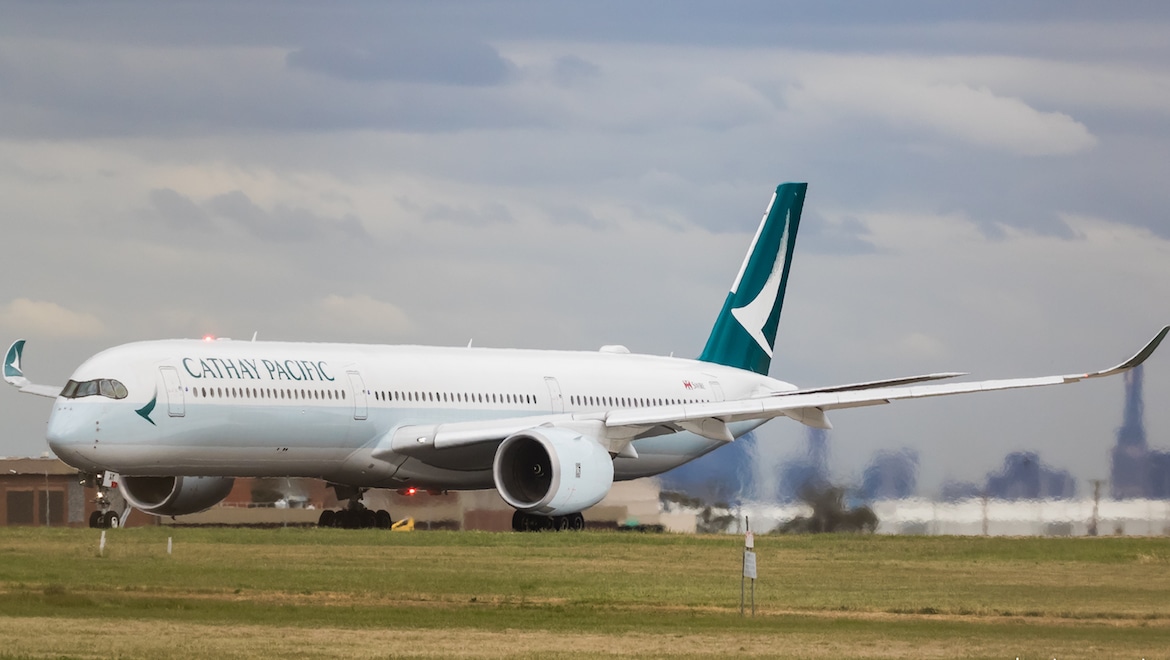
In September, Cathay Pacific agreed on 18-million-gallon sustainable aviation fuel (SAF) deal with California-based company Aemetis, joining the rapidly growing list of other airlines following suit.
Cathay Pacific’s head of marketing and sales, Paul Johannes, explained that the decision to commit to the use of SAF reflects the company’s goal of reaching net zero emissions by 2050.
The core of the sustainability plan for the short term relies on the new deal with Aemetis to supply SAF but will also involve operational efficiency improvements, fleet modernisation, and decarbonisation technology deployment over the coming years.
The SAF will be delivered from San Francisco International Airport over a seven-year period beginning in 2025. The SAF will be a 40/60 blend of SAF (40%) and Petroleum Jet A1 fuel (60%) to align with international blending standards.
The fuel will be produced in Riverbank, California and will use waste wood to produce cellulosic hydrogen. It will then be combined with wastes and non-edible sustainable oils. The combination of materials will then be converted to SAF via hydroelectricity.
This is part of Cathay Pacific’s partnership with Oneworld Alliance’s SAF initiative. It is estimated by the airline that the SAF purchased will reduce carbon emissions by more than 80,000 tonnes.
Aemetis has said airports will not need to change the fuel systems that they already have in place to fuel planes with A1 jet fuel, therefore making SAF an immediate step forward in the attempt to make the aviation industry more environmentally friendly.
Cathay Pacific has recently been at the forefront of sustainability in Asia, being the first airline to launch a carbon offsetting scheme 15 years ago. So far, the program has been successful in offsetting 300,000 tonnes of CO2.
In recent years, the airline has been in the process of fleet renewal in order to maximise efficiency, adding the efficient Airbus A321neo and Airbus A350 to its fleet. The airline has also chosen to swap out single-use plastics on their flights for recyclable alternatives.
“This is just one of the many things that we’re doing in terms of sustainability,” Mr Johannes said.
“Plus if you add to that, we have our whole carbon offset program. We are very strong on eliminating single-use plastic.”
“So we’ve got a whole big sustainability piece and in everything we do with our teams, our customers this is always top of mind and something that we weave into to our business,” he said.











